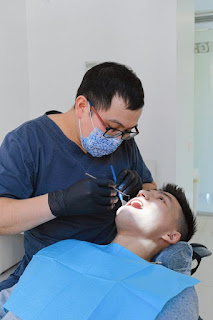When Should I Book An Emergency Dental Appointment?
If you have a dental emergency and need to find an emergency dentist in Wellington, we can help! Sometimes it can be hard to know whether the tooth pain or dental issue you are dealing with requires an emergency dentist appointment. This blog aims to make it easy to understand when to book an emergency dentist appointment. Learn: ● What is a dental emergency? ● How to know if you have a dental emergency ● When you should visit the emergency room VS the dentist ● Tips on how to avoid a dental emergency What is a dental emergency? ● How to know if you have a dental emergency ● When you should visit the emergency room VS the dentist ● Tips on how to avoid a dental emergency What is a Dental Emergency? Dental emergencies are dental problems that require immediate attention or treatment to prevent tooth loss or treat dental pain. Common dental emergencies include: bleeding that won’t stop pain in a tooth a broken...


Comments
Post a Comment